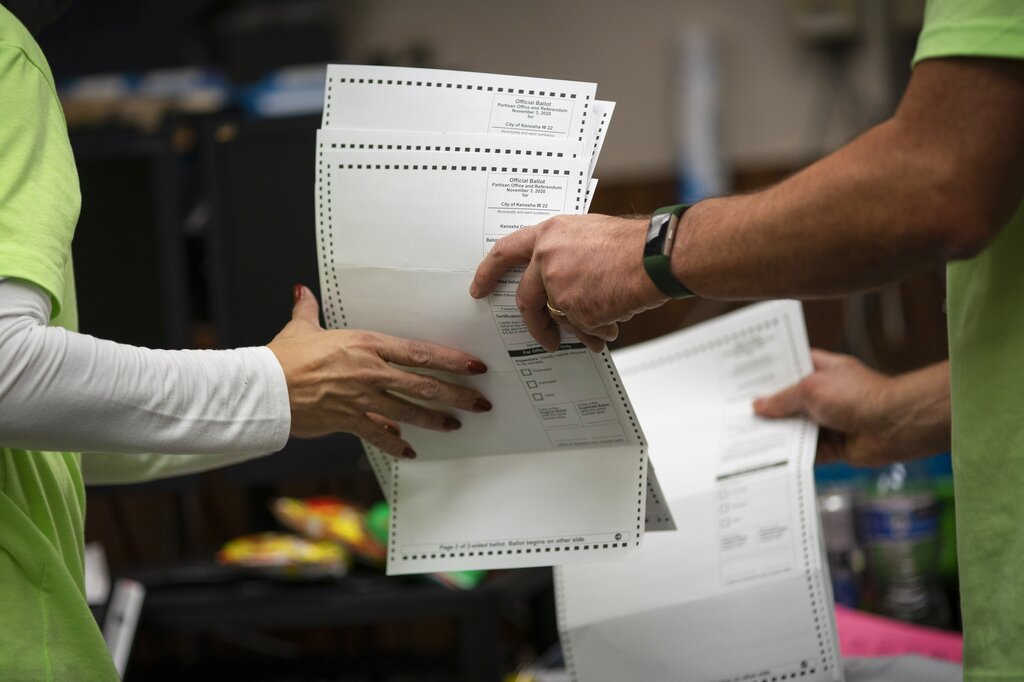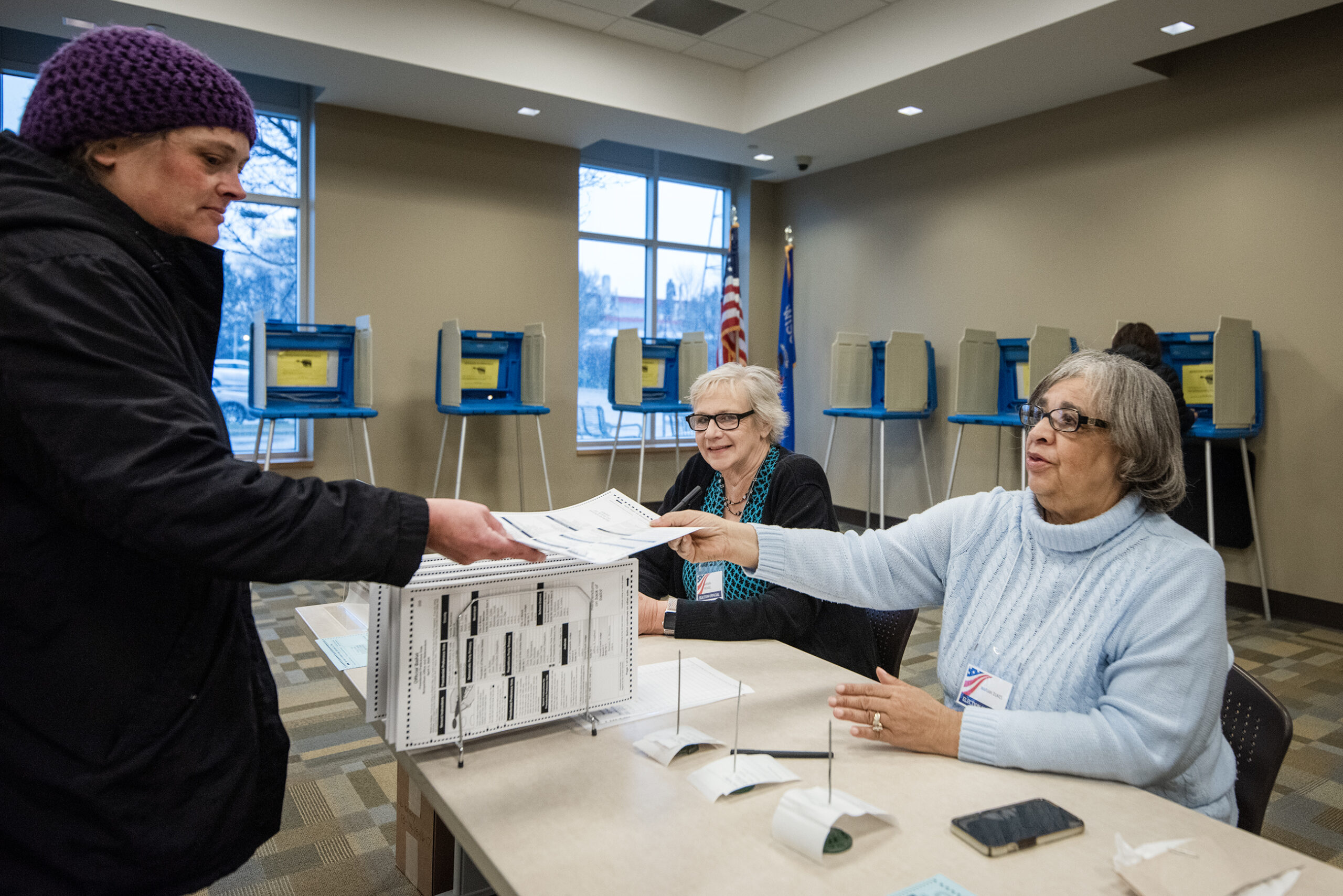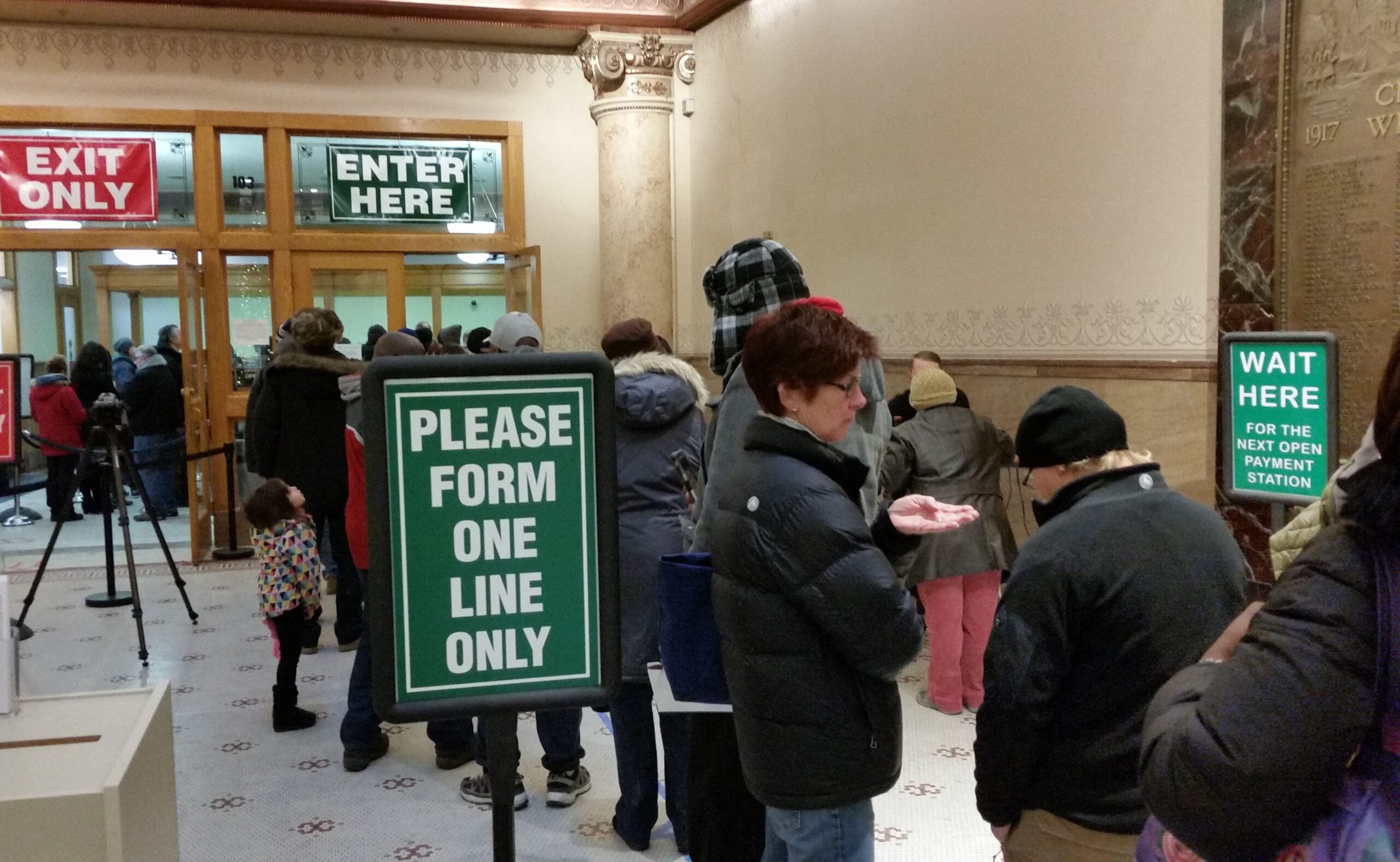Unfounded conspiracy theories about voting in Wisconsin have led to more scrutiny of election workers by political parties. Both Democrats and Republicans are enlisting members from their parties to work this year’s elections.
However, some GOP chapters alleged their nominated poll workers weren’t selected to staff the spring primary.
Andrew Bahl is the state government reporter at the CapTimes who covered this story. He spoke with Morning Edition Host Alex Crowe.
News with a little more humanity
WPR’s “Wisconsin Today” newsletter keeps you connected to the state you love without feeling overwhelmed. No paywall. No agenda. No corporate filter.
This interview was edited for clarity and brevity.
Alex Crowe: So in Wisconsin, can we explain how this works? Election poll workers can have a partisan origin story. How are the names of these individuals sent off to the clerk’s office?
Andrew Bahl: It might seem a little strange at first that poll workers come from the political parties. But there actually is often a very good reason for this. And it’s to try and actually increase trust in elections.
The idea is poll workers — the folks who handle your ballots, the folks who check your ID, check you in at the polling place — they have to make decisions sometimes about whether a voter whose name doesn’t exactly match the poll book or doesn’t exactly match to their ID, whether that vote should be counted.
The idea is having folks from different parties involved makes it seem like it is a nonpartisan decision that they might ultimately reach. So what the end result is in Wisconsin is both political parties, the local chapters of their political parties submit a list of potential poll workers to clerks. Clerks, by law, have to go through all of those names before they move on to getting poll workers from another source.

AC: Republican chapters in Dane and Milwaukee counties filed complaints saying that their party’s poll workers were not included in sufficient numbers in the April election. How have those election clerks responded to those allegations?
AB: The local Republican party chapters filed a compliant with the backing of the Republican National Committee with the Wisconsin Elections Commission saying that their people were ignored. They were on the list and they didn’t get contacted, they didn’t wind up working the election.
Now, the clerks in both Madison and Milwaukee say that there’s much more to this, and that, if asked, they can provide evidence that they did reach out to these folks. They just didn’t hear anything back.
That’s not unusual, the clerks will have a fairly lengthy list sometimes and only a small fraction of the people on those lists actually pick up the phone and raise their hand saying, “Yeah, I’m going to work.”
Ultimately, this will be decided by the elections commission. But, it does, I think, show the increased importance that the parties are placing on this tool.
AC: Why is this emphasis happening now, Andrew? It is because of the 2020 election and allegations of fraud? And so there’s just an emphasis now on having an equal member of both parties? Why is that emphasis taking place in this 2024 election?
AB: I think it depends on who you ask. For the Republican Party of Wisconsin and there are local chapters, I think it does come down to the 2020 election and concerns that a lot of conservatives have about whether the election was properly administered and conspiracy theories that have flowed from that.
We were at the state party convention and the chairman of the Republican Party of Wisconsin, Brian Schimming, said they had over 5,000 poll workers submitted by the deadline last year to work in the elections in 2024.
And it’s not just to have boots on the ground, trying to keep an eye on what’s going on in the election. It’s to provide a talking point so that their voters feel more comfortable going to the polls and have more trust in the election system.
I think for the Democrats, it’s trying to match that level of engagement as well. The state Democratic Party said that they also have a record number of poll workers signed up with interest in working this year. I think it’s to try and ensure — like you said — there is that balance that they’ll have poll workers from both parties working there.

AC: How are election clerks responding to this big influx and all these name being sent to them?
AB: At least here in Madison, their situation is probably different in other municipalities. But I asked the city clerk for data here in Madison, and even though there are these higher number of partisan poll workers being submitted, in the April election only 3 percent of poll workers were either Republican or Democrat.
The overwhelming majority are considered nonpartisan in their origin. But we have a couple more elections this year. They’re much more high profile in nature than the April presidential primary, so definitely something we’ll be keeping an eye on.
Wisconsin Public Radio, © Copyright 2025, Board of Regents of the University of Wisconsin System and Wisconsin Educational Communications Board.







